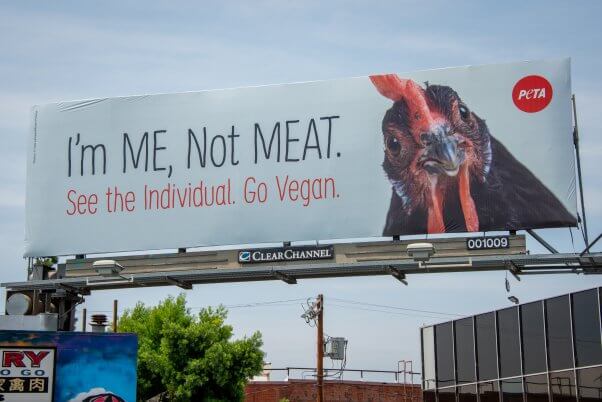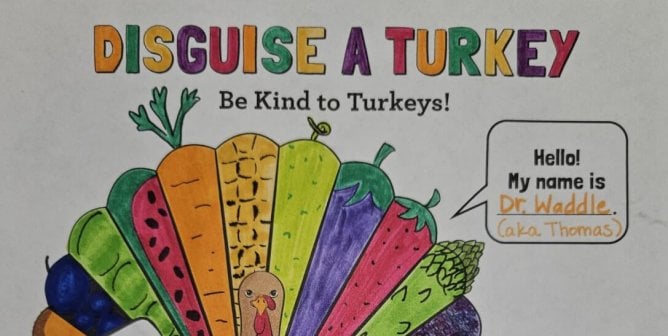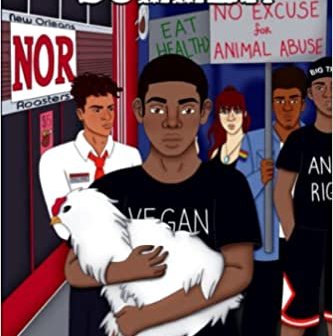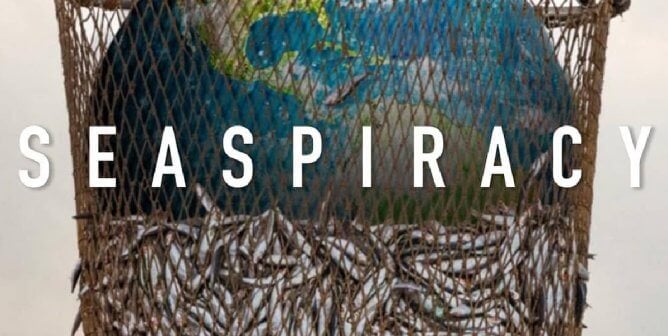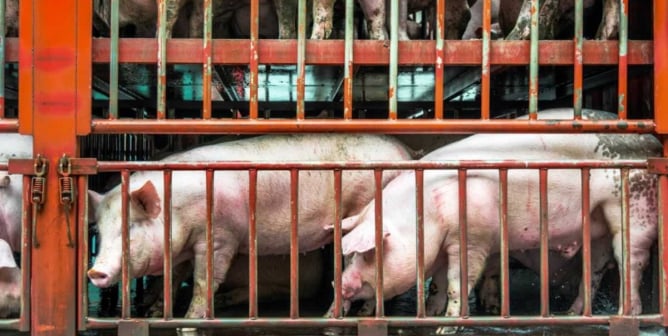Debate Kit: Is It Ethical to Eat Animals?
A hot topic in classrooms and on the minds of many people today is whether or not it’s ethical to eat animals. Here at PETA, our core belief is that animals are not ours to use. We know that many schools assign debates on topical issues to help their students learn to speak and write persuasively, develop research skills, and recognize multiple sides of a controversial or multifaceted issue—and the ethical question of using animals for food is certainly one such topic. This student debate kit lists a variety of resources that can be shared with students to support the argument that eating animals is ethically unjustifiable and that eating vegan is the only solution.
Resolved: Eating animals is cruel, unsustainable, and unethical, and people should make the switch to vegan eating.

Affirmative Argument
The food industry is one of the biggest exploiters of animals and is responsible for mass suffering and death. Every year, tens of billions of animals are killed for food, and most endure lives of constant fear and torment. Nearly all the animals raised for food in America today are separated from their families and crammed by the thousands into filthy warehouses, where they spend their entire lives in abysmally filthy conditions. They’re mutilated without the use of painkillers and deprived of everything that is natural and important to them. On the killing floor, many animals are conscious and struggling to escape while their throats are cut—and some are still conscious while their bodies are hacked apart or when they’re dunked into tanks of scalding-hot water.
It is an indisputable fact that animals have sentience and complex nervous systems. Animals are intelligent and complex—much more so than many people even realize—and scientists are finding more and more evidence of this all the time. But emotional complexities and intellectual capabilities aside, animals can feel pain just like humans can—and just like us, they value their lives and don’t want to suffer.
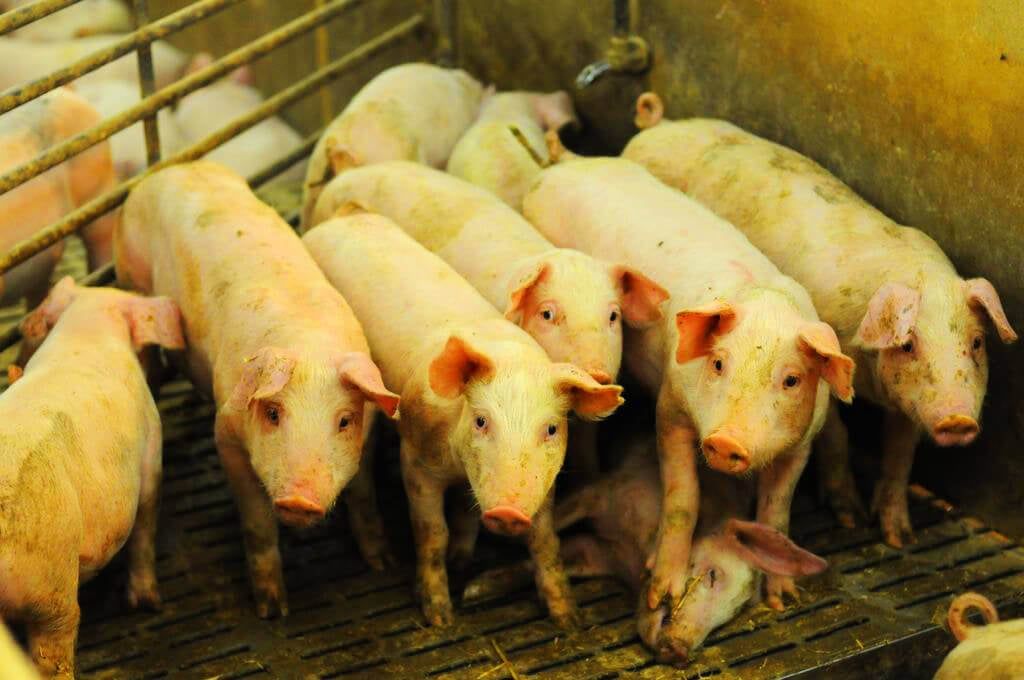
That said, there is no such thing as “humane meat.” Giving animals a few more inches of living space is simply not enough—and even if their quality of life is high, we still don’t have the right to take that life for something as trivial as a particular meal. Animals on organic and “free-range” farms often endure the same cruel mutilations—such as debeaking, dehorning, and castration without painkillers—as animals on conventional factory farms do. And at the end of their miserable lives, they are typically shipped on trucks through all weather extremes (usually without food, water, or rest) to the same slaughterhouses used by factory farms.
In addition to animal suffering, animal agriculture also contributes to environmental destruction. Raising animals for food requires massive amounts of land, food, energy, and water and results in polluted land, water, and air. The United Nations (U.N.) has acknowledged that raising animals for food is “one of the top two or three most significant contributors to the most serious environmental problems, at every scale from local to global.” And the resources going toward feeding the billions of animals used for food could be used more wisely to combat world hunger.
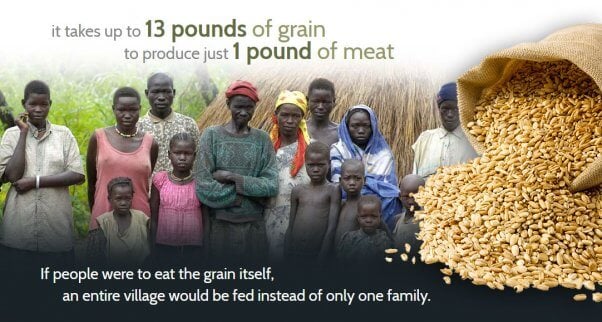
People may ask, “But animals eat meat, so why shouldn’t we?” Some animals do kill other animals for food, but unlike most humans, those particular animals could not survive if they didn’t. It’s unfortunate that some suffering is a part of nature. But humans are capable of making choices based on ethics—such as how to feed, clothe, and entertain ourselves—so we have the responsibility of making the most ethical choices possible and of doing our best to reduce suffering of any kind.
Of course, there are also similarities between humans and other animals. Like us, other animals experience fear, pain, and distress. But we are uniquely capable of choosing between cruelty and kindness, so we should never willfully inflict pain on any being—human or nonhuman.
Humans have the ability to reason and make compassionate choices, so we must end the use of animals for food in favor of a humane, vegan way of eating. There is no humane or ethical way to eat animals—so if people are serious about protecting animals, the environment, and fellow humans, the most important thing that they can do is to stop eating meat, eggs, and dairy “products.”
Become an ‘Expert’
The following links contain general information about the ethics of eating animals and can be used to prepare logical arguments:
- BBC Ethics Guide: Eating Animals
- Factory Farming: Misery for Animals
- ‘Free-Range’ and ‘Organic’ Meat and Dairy ‘Products’: Conning Consumers?
- Vegan Diets: Healthy and Humane
Build Your Case
Use the following links on animal welfare to gather evidence and examples to support your position against animal agriculture.
Research Articles and Investigative Analyses Regarding Animal Pain Response
- Animals Feel Pain Because Something Hurts
- Do Animals Feel Pain in the Same Way That Humans Do?
- Do Fishes Have Nociceptors?
- Evolution: The Advantage of ‘Maladaptive’ Pain Plasticity
- It’s Official: Fish Feel Pain
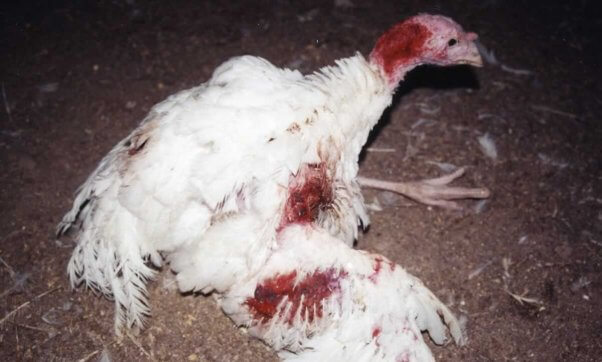
Research Articles and Investigative Analyses Regarding Eating Animals
- 5 Ethical Reasons to Stop Eating Meat
- The Abuse of Animals Won’t Stop Until We Stop Eating Meat
- Animal Cruelty Is the Price We Pay for Cheap Meat
- Cow’s Milk: A Cruel and Unhealthy Product
- Eating Meat Is Also Animal Abuse
- Fishing: Aquatic Agony
- Is Veganism a Personal Choice?
- Meat and Seafood Eaters Are Fickle About Love for Animals
- A Moral Argument for Veganism
- Pigs: Intelligent Animals Suffering on Farms and in Slaughterhouses
- Poultry and Eggs: Industries That Abuse Chickens
- So, What Is an Ethical Vegan?
- Turkeys: Torture on the Holiday Table
- Veal: A Byproduct of the Cruel Dairy Industry
- What’s Wrong With Factory Farming?
- Why Are We Outraged About Eating Dog, but Not Bacon?
- Why Factory Farming Is Not Just Cruel—but a Threat to All Life on This Planet
Eyewitness Investigations
- Abuse on an Australian Dairy Farm
- Calves Torn From Their Mothers, Sick and Struggling to Breathe
- Chickens Crammed Inside Shed on ‘Free-Range’ Farm
- Ducks Kicked, Slammed Against Walls for Meat and Down
- Exposed: Tyson Workers Torturing Birds, Urinating on Slaughter Line
- Factory Farm Investigations
- Footage From Cruel Pig Farms Exposes the ‘Initiative for Animal Welfare’ as Consumer Fraud
- Goats Beaten for Organic Milk
- Hens Buried and Trapped in Manure on British Columbia Egg Farm
- Investigation of Hudson Valley Foie Gras
- Investigation Reveals Horrific Cruelty to Turkeys
- ‘Shackle and Hoist’ Horror: The Hidden Cost of Cheap Kosher Beef
- Thousands of Hens Found Dead, Beaten, Gassed, and Neglected at Filthy Oklahoma Egg Farm Supplying Kroger and Others.
- Whole Foods ‘Happy Meat’ Supplier Exposed
Additional Environmental and Human Rights Problems Resulting From Eating Animals
- Animal Agriculture Is Choking the Earth and Making Us Sick. We Must Act Now.
- How Does Meat in the Diet Take an Environmental Toll?
- Slaughterhouse Workers
- U.N. International Panel on Climate Change Says Huge Reduction in Meat-Eating ‘Essential’ to Avoid Climate Breakdown
- A Vegan America Could Feed 350 Million More People, Study Reveals
- Veganism and the Environment
- Was Your Seafood Caught With Slave Labor?
- Why Animal Rights Is a Social Justice Issue—and What You Should Be Doing About It
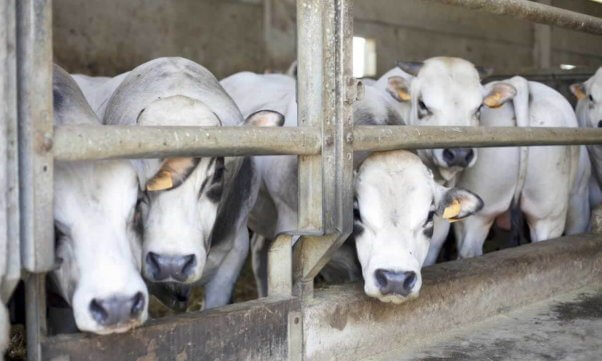
Finding Solutions
Use the following resources to help build a proposal suggesting solutions to issues that could allegedly arise if humans stopped using animals for food:
- 4 Consumer Trends Driving the Rapid Rise of Sustainable Plant-Based Foods in America
- Center for Biological Diversity: Pledge to Take Extinction off Your Plate
- Compassion for Animals: Being Vegan Is the Next Logical Step
- Meat the Disruptors: 15 Startups Shaking Up the $90Bn Global Meat Industry
- Memphis Meats to Bring Clean Duck and Chicken Meat to Stores by 2021
- Vegan Diets: Healthy and Humane
- Why Wild Earth Cofounder Ryan Bethencourt Is Applying the Science of ‘Vegan Biohacking’ to Pet Food
Anticipate Counterarguments and Prepare Rebuttals
Analyze websites that support animal agriculture to determine their reasons for justifying the production of meat and other animal-derived foods (given the ethical dilemmas and immense suffering that it causes animals). Investigate what farmers, corporations, and government agencies gain by promoting the use of animals for food, and think critically about their motivations. Also, examine which other entities benefit from using animals for food (e.g., restaurant chains, pharmaceutical companies, and industries codependent on animal agriculture, such as leather producers). Create a list of typical statements made by parties who believe that continuing animal agriculture is justified (despite the ethical concerns regarding animal rights and animals’ ability to feel pain). Information included in the links in this document can be useful in responding to counterarguments.
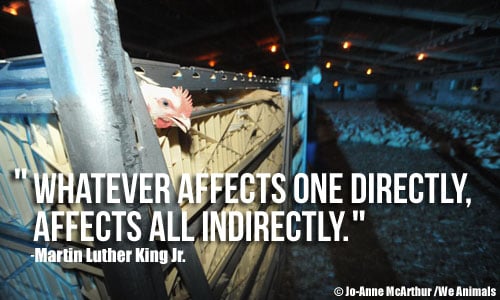
Additional Resources
Websites
- Animal Equality
- International Association for the Study of Pain: Definitions and Taxonomy
- Mercy for Animals
Infographic
Videos
- Glass Walls
- Like You, Only Different
- One Minute of Reality: Factory Farming
- Why Hamburgers Should Be Illegal
Books
- Animal Liberation by Peter Singer
- Dominion: The Power of Man, the Suffering of Animals, and the Call to Mercy by Matthew Scully
- Eating Animals by Jonathan Safran Foer
- Some We Love, Some We Hate, Some We Eat: Why It’s So Hard to Think Straight About Animals by Hal Herzog
Films
Photographs
*****
Have students use the curated content in this debate resource kit to prepare an affirmative argument stating why using animals for food is unethical and should be abandoned in favor of a global switch to vegan eating. These resources will assist students in supporting their position using scientific, ethical, and philosophical arguments.
Want free educational posters and stickers for students to use during their debates? E-mail us at [email protected].
Do your students need to conduct an interview as part of their research? Staff members from PETA’s student sector are available to speak with students via phone, Skype, or e-mail and to answer questions about our stance on using animals for food. Have students e-mail us directly at [email protected]—or if you’d like to contact us on their behalf, please fill out the form below, and we’ll arrange for them to speak with a representative.
By submitting this form, you’re acknowledging that you have read and agree to our privacy policy and agree to receive e-mails from us.

